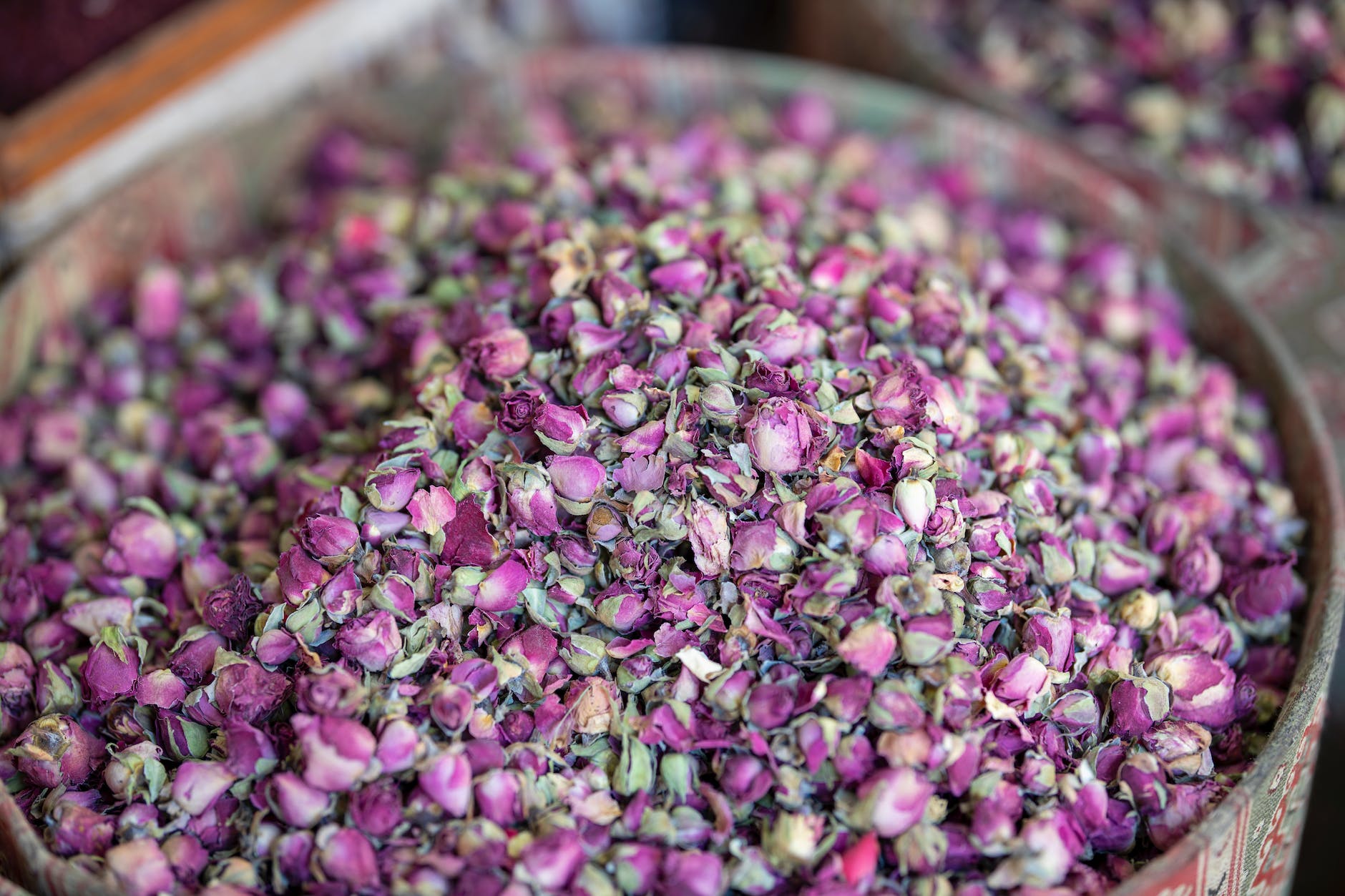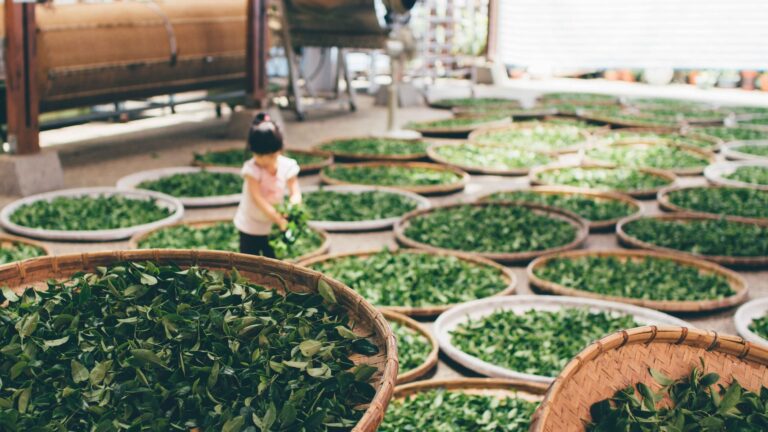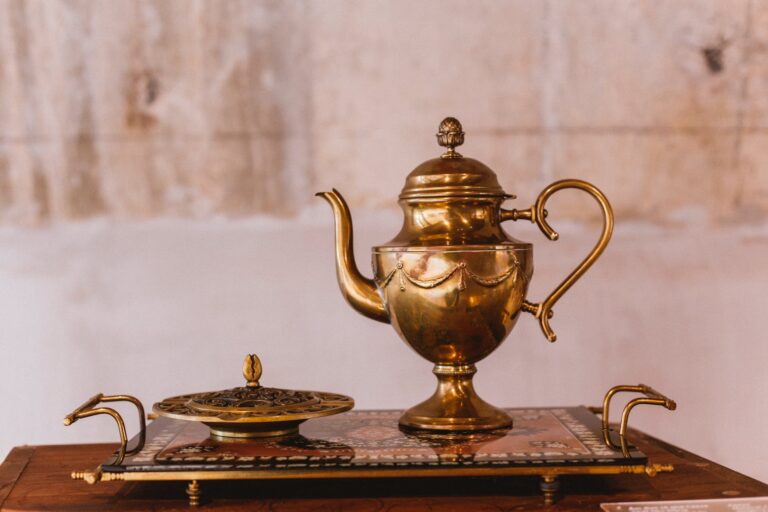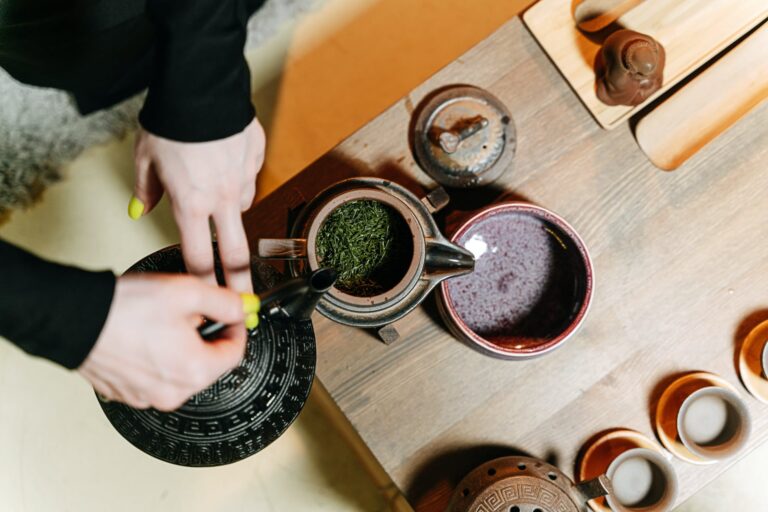Small Batch, Big Flavor: The World of Boutique Tea Farming
Introduction
In an era dominated by mass production, the enchanting world of boutique tea farming emerges as a beacon of tradition, meticulous care, and unparalleled quality. Boutique tea farms, often family-run and nestled in pristine environments, prioritize small-batch production, ensuring each cup of tea is a testament to their commitment to excellence. This article delves deep into the heart of boutique tea farming, uncovering the intricate processes and personal stories behind these artisanal creations.
The Essence of Boutique Tea Farming
Boutique tea farming is more than just agriculture; it’s an art form that combines age-old traditions with a deep understanding of modern sustainable practices. These farms, often passed down through generations, bring a personal touch to every aspect of tea production, from planting to packaging.
Handpicked Quality
The selective plucking by experienced hands ensures only the finest leaves make it into the final product. This careful selection is crucial in defining the subtleties of flavor and aroma unique to boutique teas.
Unique Flavor Profiles
The small-scale nature of boutique farms allows for a nuanced cultivation process, taking into account the specific needs of each tea plant. This attention to detail results in teas with complex flavor profiles, distinct to their terroir and impossible to replicate on a larger scale.
Sustainability and Eco-Friendly Practices
Boutique tea farming is inherently linked to sustainable practices. These farms often use organic methods, avoiding chemicals that harm the environment and produce cleaner, healthier teas.
Preserving Biodiversity
By maintaining a diverse ecosystem, boutique farms contribute to the health of the environment. The variety of tea plants grown on these farms helps to sustain a balanced ecological system, beneficial for both the land and the final product.
Community Impact
The impact of boutique tea farms extends beyond the boundaries of their estates. They often serve as pillars of their local communities, providing jobs, supporting local economies, and preserving cultural traditions.
The Artisan’s Touch in Tea Processing
The magic of boutique teas lies in the traditional methods employed in their processing. Artisans bring generations of knowledge to each step, ensuring the tea’s natural qualities are highlighted and preserved.
Hand-Rolling Techniques
Skilled artisans use hand-rolling techniques to shape the tea leaves, impacting their oxidation process and final flavor. This labor-intensive method is a testament to the artisan’s dedication to quality.
Traditional Drying Methods
Traditional drying methods like sun-drying or shade-drying are preferred in boutique tea farming. These methods, reliant on natural elements, imbue the tea with flavors that are subtle, complex, and reflective of their natural surroundings.
Challenges and Triumphs
Operating a boutique tea farm is not without its challenges. The intricate balance of maintaining traditional methods, adapting to changing environmental conditions, and navigating the global tea market requires resilience and adaptability.
Overcoming Market Pressure
In a market often dominated by larger producers, boutique tea farms must carve out a niche for themselves. This is often achieved through focusing on quality, uniqueness, and the story behind their teas.
Upholding Tradition
For many boutique tea farmers, preserving the heritage and traditional practices of tea-making is a driving force. These practices are not just methods of production but are imbued with cultural and historical significance.
The Boutique Tea Experience
The experience of drinking boutique tea is akin to a sensory journey into the heart of where and how it was cultivated. Each cup tells a story of the land, the climate, and the artisan’s touch. Exploring the unique world of boutique tea is a journey that goes beyond the simple act of drinking tea. It is an immersive experience that connects the drinker to the tea’s origin, the artisan’s passion, and the timeless traditions that make each cup a work of art.
A Connoisseur’s Delight
Boutique teas are often sought after by connoisseurs and enthusiasts who appreciate the subtle nuances and complex flavors that are the hallmark of small-batch processing. These teas are not just consumed; they are experienced, offering a palate of flavors that tell a story of their meticulous creation.
A Connection to the Source
Drinking boutique tea offers a unique connection to the land and the people who cultivate and process it. Each sip provides a glimpse into the life of the tea farmers and their commitment to preserving the natural beauty and integrity of the tea leaves.
The Challenges of Boutique Tea Farming
While boutique tea farming is a labor of love, it is not without its challenges. From environmental factors to market dynamics, these small-scale farmers face numerous obstacles in bringing their exceptional teas to the world.
Navigating Environmental Challenges
Boutique tea farmers often contend with the unpredictability of weather and the impact of climate change on their crops. Adapting to these environmental challenges requires resilience and innovation to maintain the quality and consistency of their tea.
Market Dynamics and Sustainability
In a market dominated by large-scale producers, boutique tea farmers must find ways to sustain their operations and compete effectively. This often involves creative marketing, building a loyal customer base, and focusing on the unique aspects of their tea that set them apart.
Preserving Cultural Heritage
Boutique tea farming is not just about growing and processing tea; it is about preserving a cultural heritage. These farmers are custodians of ancient tea-making traditions, passing down knowledge and practices that have been honed over generations.
The Role of Tradition in Modern Tea Farming
Incorporating traditional methods in modern tea farming allows these artisans to maintain the authenticity and soul of their tea. This blending of the old with the new ensures that the rich history of tea-making continues to thrive in today’s world.
The Importance of Storytelling
Storytelling plays a crucial role in preserving and sharing the cultural heritage of boutique tea farming. These stories, often woven into the branding and marketing of the tea, help to educate consumers and create a deeper appreciation for the tea and its origins.
The Future of Boutique Tea Farming
As the world becomes increasingly aware of the importance of sustainable practices and the value of artisanal products, the future of boutique tea farming looks promising.
Embracing Sustainability
Boutique tea farmers are at the forefront of sustainable agriculture, employing practices that are in harmony with nature and respectful of the environment. This commitment to sustainability not only enhances the quality of their tea but also sets a standard for the industry.
The Growing Demand for Artisanal Teas
There is a growing demand for artisanal, boutique teas among consumers who value quality, sustainability, and authenticity. This trend provides an opportunity for boutique tea farmers to expand their reach and share their exceptional teas with a wider audience.
Innovation and Adaptation
To thrive in the changing landscape, boutique tea farmers are embracing innovation while staying true to their roots. This includes experimenting with new tea varietals, adopting eco-friendly practices, and exploring new markets to share their story and their tea.
Conclusion
The world of boutique tea farming is a rich tapestry of tradition, flavor, and sustainability. These small-scale farms not only produce some of the finest teas in the world but also represent a commitment to preserving the natural environment and the cultural heritage of tea-making. As we savor each cup of boutique tea, we celebrate the artistry, dedication, and passion that define this unique and vibrant sector of the tea industry. Boutique tea farming is a testament to the fact that in the pursuit of quality and authenticity, small batch indeed means big flavor.






